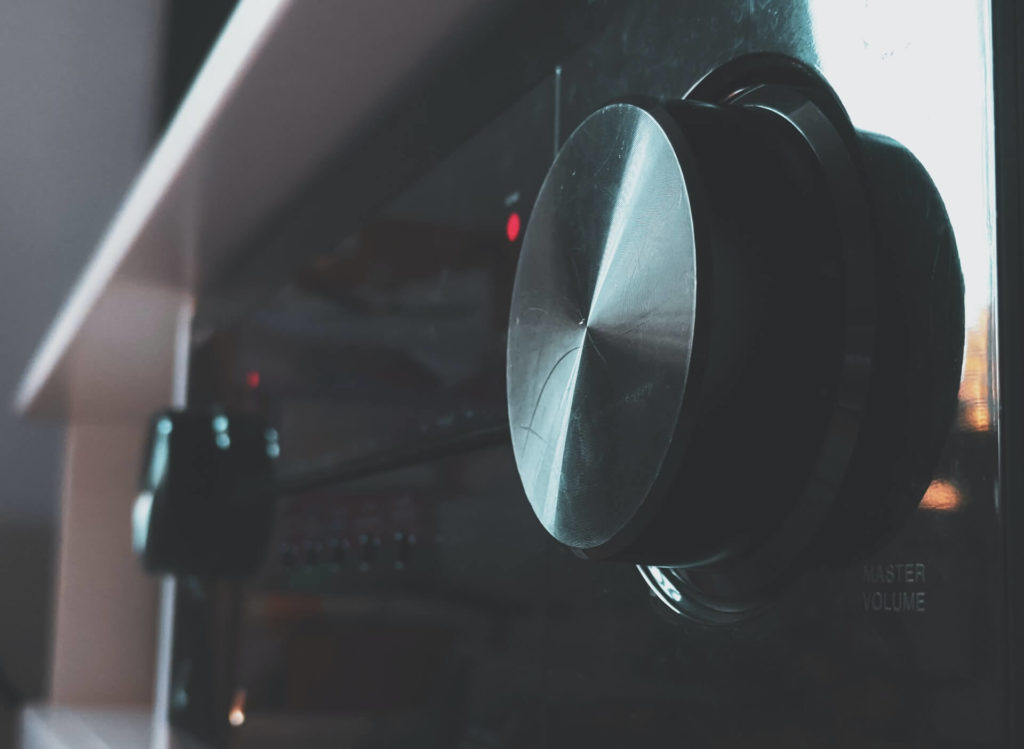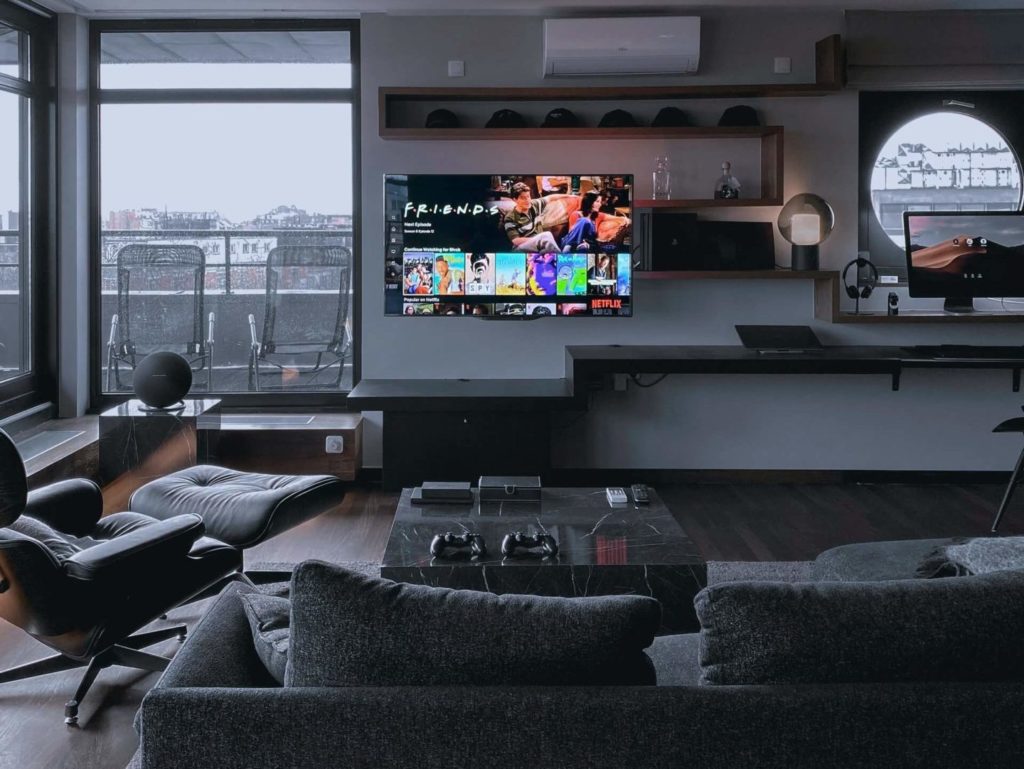If you’re building a home entertainment system, you’ve probably thought about installing either an amplifier or a receiver. Yet, choosing one or the other can be confusing. Aren’t they practically the same thing?
Even though they’re generally believed to be the same thing, they have a few differences. So, let’s take a closer look at this ‘receiver vs. amplifier’ debate so you can see which one best suits your listening needs.
Table of Contents
- What Is an Amplifier?
- What Are Receivers?
- Receiver vs. Amplifier: Which Should You Choose?
- Receiver vs. Amplifier: Pros and Cons
- Conclusion: Receivers vs Amplifiers
What Is an Amplifier?
An amplifier is a device used to amplify, or boost, audio. Its main function is to receive low voltage audio signals from your equipment. Then, it strengthens these signals before sending them back to your speakers, sounding louder and better.
Below are a couple of examples of amplifiers. Take a look.
Preamplifiers
Preamps are the first stage of audio enhancement. They have one simple task: to increase gain in audio signals. They make the audio signals more audible and noise-free before reaching their final destination.
While a preamplifier’s job is pretty simple, it makes a big difference when it comes to audio quality. Without it, audio can come out distorted or mixed with lots of noise.
It’s why you commonly find musicians making full use of their preamplifiers to produce the best sound they can.
Power Amplifiers
Power amplifiers are the second stage with audio enhancement. Their main function is to increase the magnitude and voltage of any received audio signals.
These gadgets increase audio levels high enough for output through different devices like headphones and loudspeakers.
It’s pretty convenient because everyone gets to use different kinds of speaker systems. This means that power amplifiers give you the option to adjust the audio level and voltage accordingly to get the best results from your speakers.
Integrated Amplifiers
Integrated amplifiers are a mix of preamplifiers and power amplifiers. They’re integrated with the benefits of both devices into one unit for added convenience and ease of use.
They also come with various inputs for connecting a wide range of devices. A few examples include DVD and CD players and other auxiliary sources.
These devices are typically used with two-channel stereos. Whether you go for an integrated amplifier or get both a preamplifier and power amplifier separately boils down to your personal preference.
What Are Receivers?

The easiest way to describe receivers is to know that they’re basically amplifiers with built-in radios. Yet, they do much more than just amplify audio. Some models come with a video connection and, in some cases, even a Bluetooth connection as well.
In other words, all receivers can be considered amplifiers, but the opposite isn’t true. The most common types of receivers are audio/video (AV) receivers and stereo receivers.
Audio/Video (AV) Receivers
As mentioned in their name, AV receivers support both audio and video. Plus, they come with various analog and digital inputs so you can connect various devices to your TV, like gaming consoles and streaming devices. Denon AV receivers are well regarded as the industry standard.
These AV receivers are a great pick for gamers and movie enthusiasts. In fact, they’re great for anyone who wants to build a home entertainment system without too much hassle or fuss and without taking up a lot of space. They are also a popular choice for home theater enthusiasts for technical reasons. A surround sound system is a must for many who want high-quality high theater. The best video (4K, HDR, Dolby Vision, etc) and surround sound like Dolby Atmos typically require a proper AV receiver to seamlessly pass through the best experience from multiple source devices.
Stereo Receivers
Unlike AV receivers, stereo receivers are just for audio. They have different input slots for multiple audio sources, including radio functions.
Since their focus is on audio, they rarely come with any video support. These receivers are a great pick if you’re just looking for an affordable, uncomplicated setup for listening to music, podcasts, or even audiobooks. They often provide better sound quality than similarly priced AV receivers. If a sound system is your primary concern, stereo receivers can be the ideal choice.
Receiver vs. Amplifier: Which Should You Choose?

You might wonder. If receivers have the same function as amplifiers and come with multiple other features as well, shouldn’t we just go for receivers?
Well, the answer depends on you and your uses.
Now, of course, the first thing you’ll think about is that receivers will be the more convenient choice. After all, they gather the whole party in one unit.
However, they’re not perfect and, in some cases, have a few drawbacks.
If you’re a casual music listener, or your plan is just to build a simple home theater system to connect your TV, console, or speakers, then a receiver would be the better option for you.
They also save a lot of space because it’s just one device, making them perfect for small apartments. So, If your goals don’t depend on high-quality, noise-free, professional audio, there’s no need to consider amplifiers.
However, if you’re a professional musician or a hardcore audiophile, go with the amplifiers. Even if you’re just an amateur musician looking to build a home music production setup, they’ll help take your audio to a whole new level.
So, if you’re looking to enhance audio and you have the space for them, then amplifiers would be a smart investment.
Receiver vs. Amplifier: Pros and Cons
Now that we’ve dug deeper into both receivers and amplifiers, let’s list their pros and cons.
Amplifier Pros
Here are two common advantages of using amplifiers.
Easy System Upgrade
It’ll be easy to upgrade your system. With amplifiers, you buy each device separately. So, if one of them becomes damaged or outdated, you can replace it without affecting the rest of your system.
Multiple Options
You’ll get more options and functions. Plus, you get clearer, more professional-sounding results. With amplifier-based systems, you’re in control of each device, and you can work with different options until you get the best results.
Amplifier Cons
Take a look at these amplifier drawbacks.
Consumes Large Space
Amplifier-based systems take up too much space. Since each device is a unit of its own, building a full system will take up a huge space, which can be a problem for small apartments.
Not Budget-Friendly
You should know that amplifier systems are much more expensive than receiver systems. Each device has its own price, and they’re mostly on the expensive side. So, keep in mind that you’ll have to invest quite a bit to build a fully functional amplifier system.
Receiver Pros
Check out these perks of using receivers.
Budget-Friendly
Receivers are a much cheaper option than amplifiers. If your focus isn’t perfect audio, these will do the job.
Saves Space
As we mentioned before, receivers save a ton of space. Your whole setup of video, audio, and amplifier will come in one reasonably sized unit. They’re different from amplifier systems that come in separate units and consume a large area.
Receiver Cons
These are two common downsides of using receivers.
Forced Upgrade
Because the whole system is one unit, upgrading individual parts isn’t easy. Not only that but there’s no way to fix or replace certain parts. So, if something happens to one part, you’ll have to replace the whole thing.
Low-Quality Amplifier
The amplifier that comes with the receiver isn’t the best quality. Since it comes as part and parcel of the whole unit, it shares the same wiring and basic set-up as the other parts. Thus, it’s naturally not the strongest.
Unfortunately, this also means that if your speakers are too big and advanced, the amplifier inside the receiver might not be strong enough to work with it.
Conclusion: Receivers vs Amplifiers
To sum up, there’s no right or wrong answer when choosing between a receiver vs. amplifier. It all comes down to your audio needs. If you’re looking for a simple, user-friendly entertainment set-up, then you should opt for the receiver.
On the other hand, if you want something for music production, or you’re a hardcore audiophile, an amplifier system is perfect for you!
Both offer great audio experiences in their own way. So, think about which one works better for you and your budget before making your decision.
Happy listening!

Keith Collins has been writing for over 15 years for various publications. He’s a lover of music, home theater, and excellent sound quality. His fondness for technology in addition to his non-stop curiosity fuels his writing ventures.